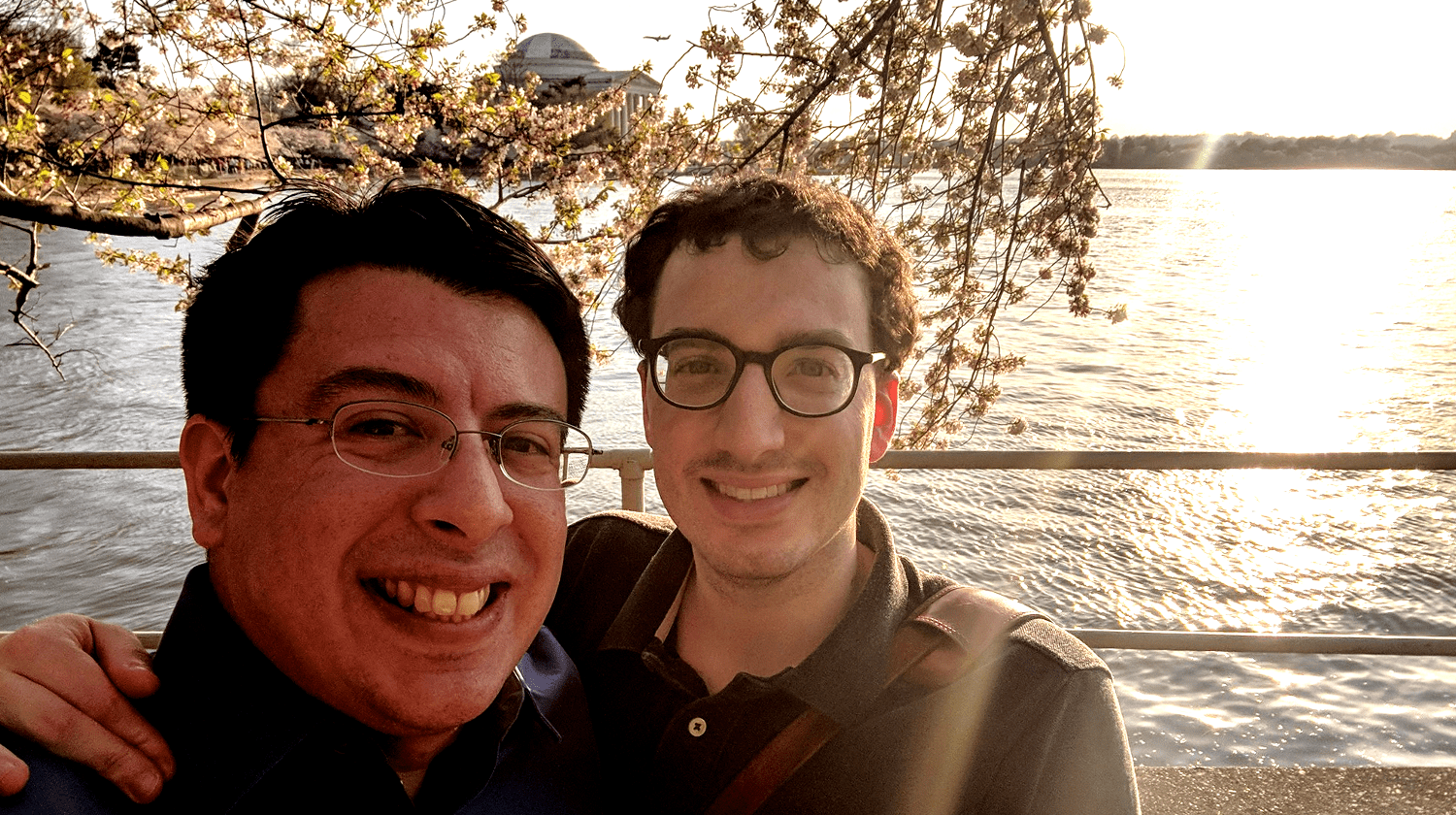
Joseph Bishop-Henchman and Ethan Bishop-Henchman are married, and they each ran for public office in Washington, D.C., as Libertarian Party candidates. Joseph ran for D.C. attorney general, and although he didn’t win, he received 14,000 votes. Ethan ran for D.C. City Council chair and received even more votes, 17,000. Both of them outpolled the highest Republican vote total in the district, only 11,000 for D.C. City Council at-large candidate Ralph Chittams. Bruce Majors, another gay Libertarian Party candidate, received a respectable 3,600 votes for the D.C. At-Large District of the U.S. House. Martin Moulton, a black, gay Libertarian Party candidate, received 6,800 votes running for D.C. mayor.
“We think an all-gay slate running for office in our nation’s capital is unprecedented,” said Libertarian National Committee Chair Nicholas Sarwark. “When it comes to respecting the rights of all the people, all the time, we put our money where our mouth is.”
The first openly gay presidential nominee of any U.S political party was John Hospers, the Libertarian Party’s first candidate for that office in 1972. His running mate, Theodora “Tonie” Nathan, was the first female Jewish candidate for vice president, and she was the first woman ever to receive an electoral vote in a presidential election. The Libertarian Party has advocated the legalization of gay marriage for decades, long before it was on the radar of either the Democratic or Republican parties, and endorsed gay rights beginning with its first platform.
“We’re proud to accept members of any and all minority groups who have been historically oppressed by government discrimination,” Sarwark said. “Immigrants, racial minorities, religious minorities, sex-workers, transsexual people, recreational drug users, open-carry advocates, gamblers — we don’t care what your lifestyle choices are.”
The gay candidates fielded by the D.C. Libertarian Party would be exemplary public servants.
Joseph Bishop-Henchman promised to use the attorney general’s investigative and oversight powers to reform public services that are mired with inefficiency and corruption. He said that some of his top priorities as attorney general would be consumer protection and cracking down on mismanagement. “One example I see is WMATA,” he said, referring to the Washington Metropolitan Area Transit Authority, which is notorious for malfunctioning trains, unsafe tracks, and rampant managerial negligence. “If WMATA was a private company, they’d have investors all over them, safety inspections, they might even be shut down.”
Ethan Bishop-Henchman indicated that as educational choice would be his foremost concern as D.C. City Council chair. “I would focus on … expanding school choice as much as possible,” he said. “I would divert more money into scholarships for low income residents and their children. I would shore up the D.C. Opportunity Scholarship, put more money into it, and make sure that more people could have access to that.”
Moulton focused his mayoral race on issues like rescinding burdensome regulations that prevent housing construction and force businesses into mazes of red tape. He also advocated improving education by facilitating more school choice. Majors argued that he would be a more effective advocate for D.C. statehood than the 28-year incumbent he ran against for the U.S. House position.
“Libertarians insist on a few fundamental principles,” Sarwark said. “Don’t hurt people. Don’t take their stuff. Don’t defraud them. Don’t hire politicians or bureaucrats to do these things for you. We congratulate our all-gay D.C. slate of candidates for their fine performances representing these Libertarian values last Tuesday. We salute the 833 candidates nationwide who ran as LP candidates this year. We are particularly happy to salute the 16 Libertarian Party candidates who won their races for public office. Going forward, we expect the number of winning Libertarian candidates to increase exponentially.”
